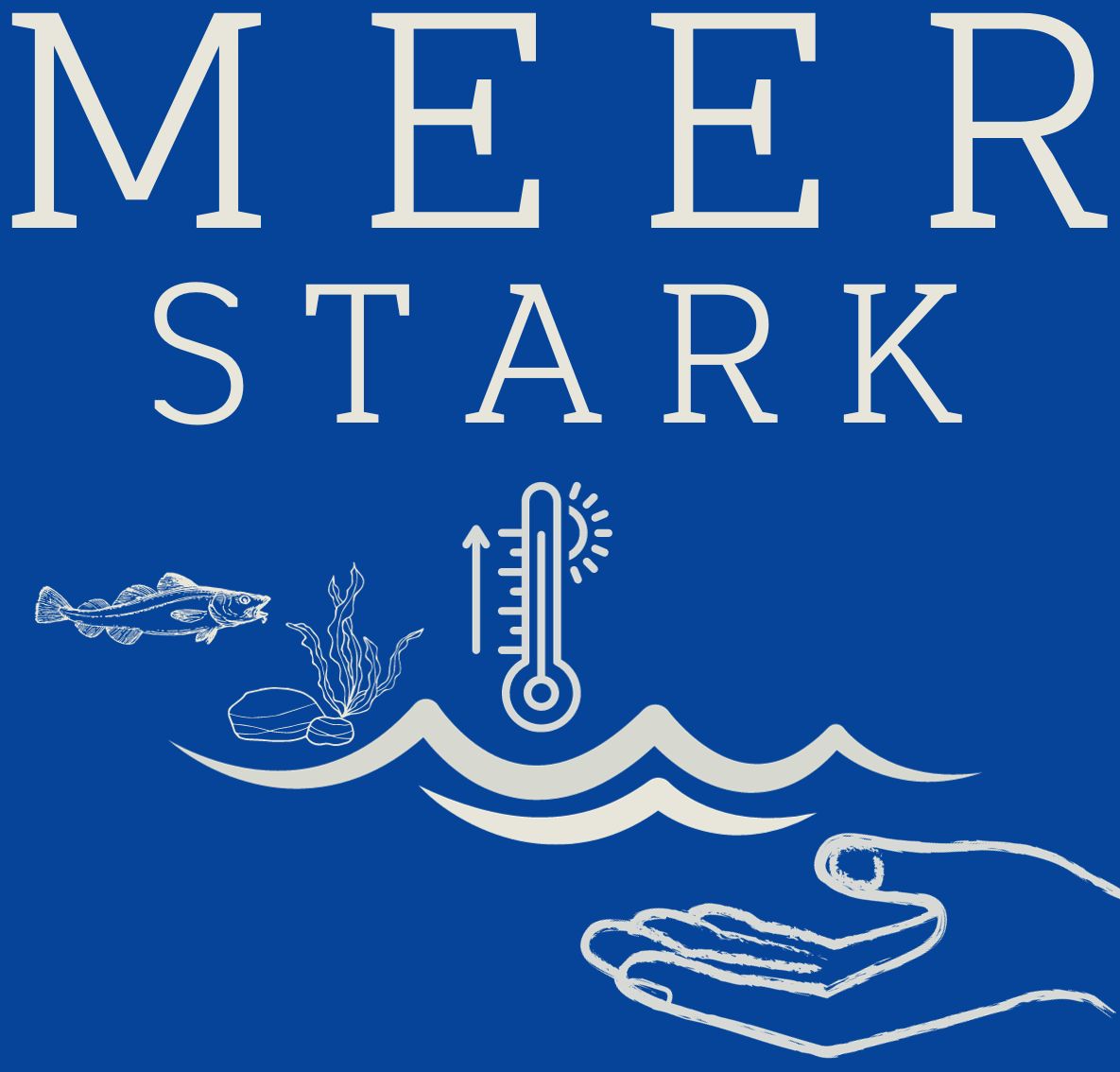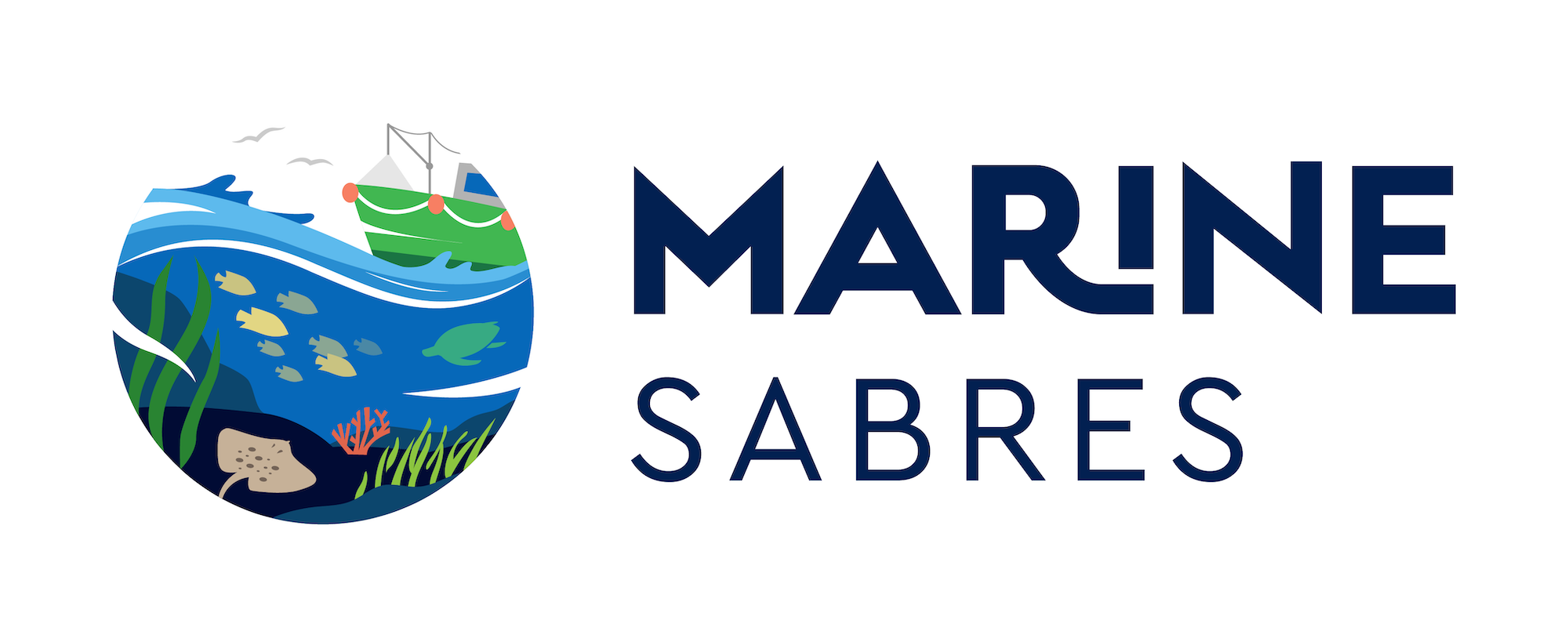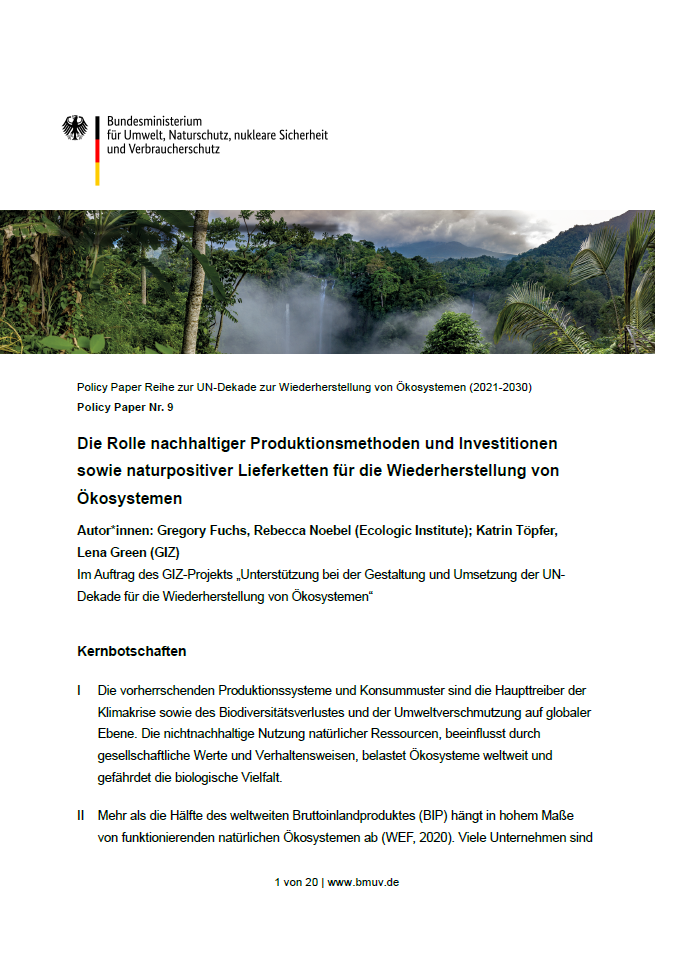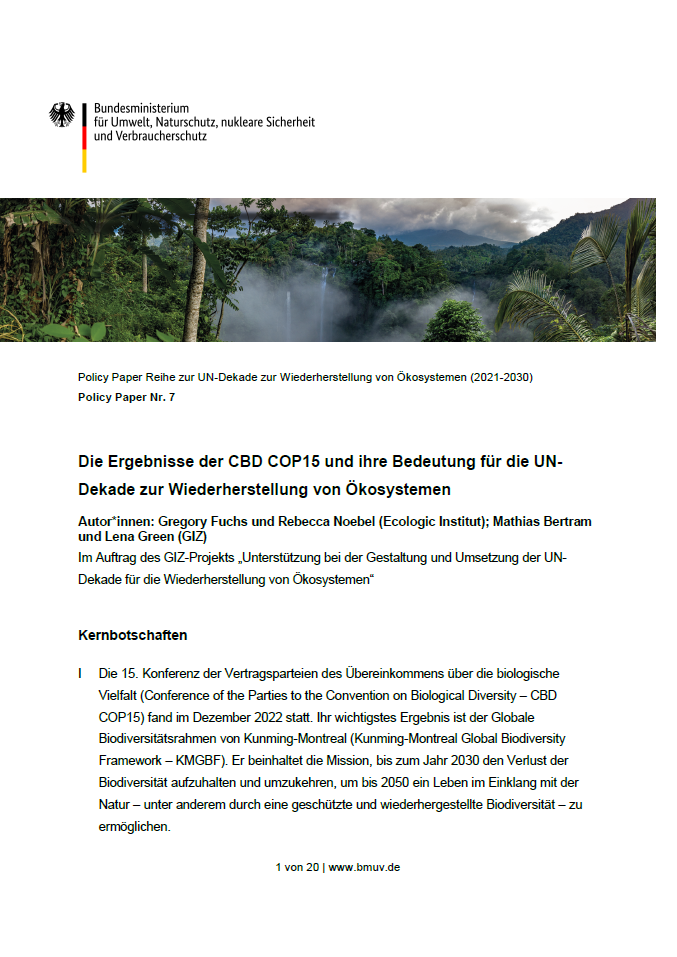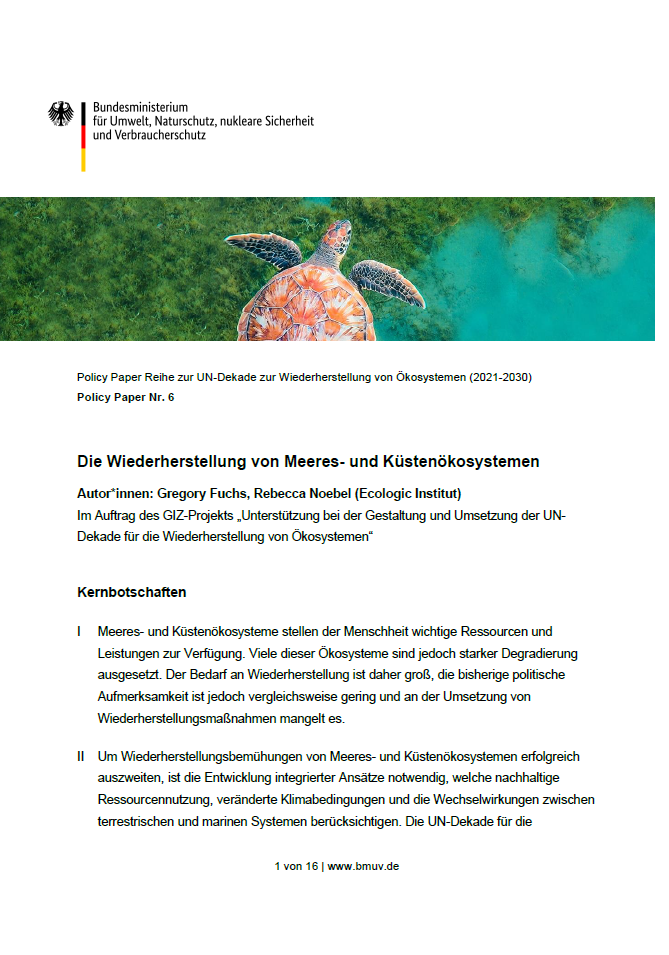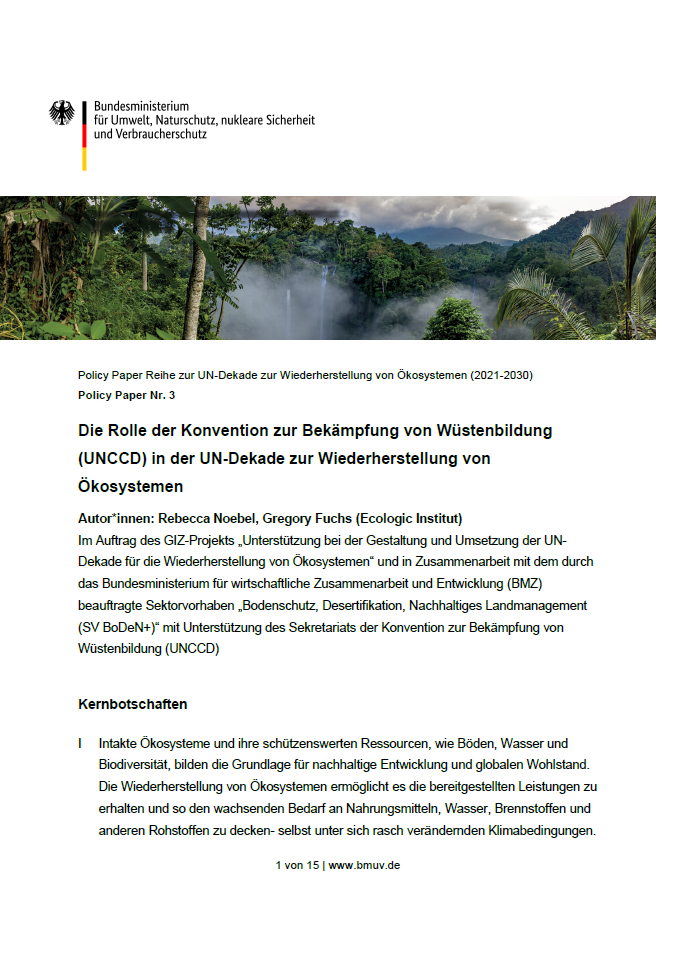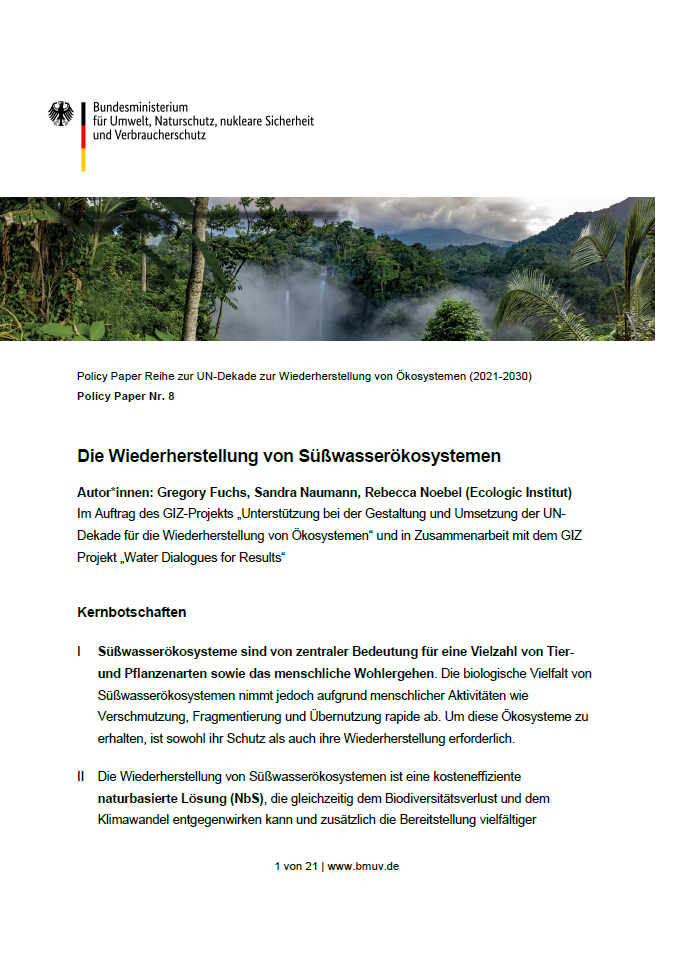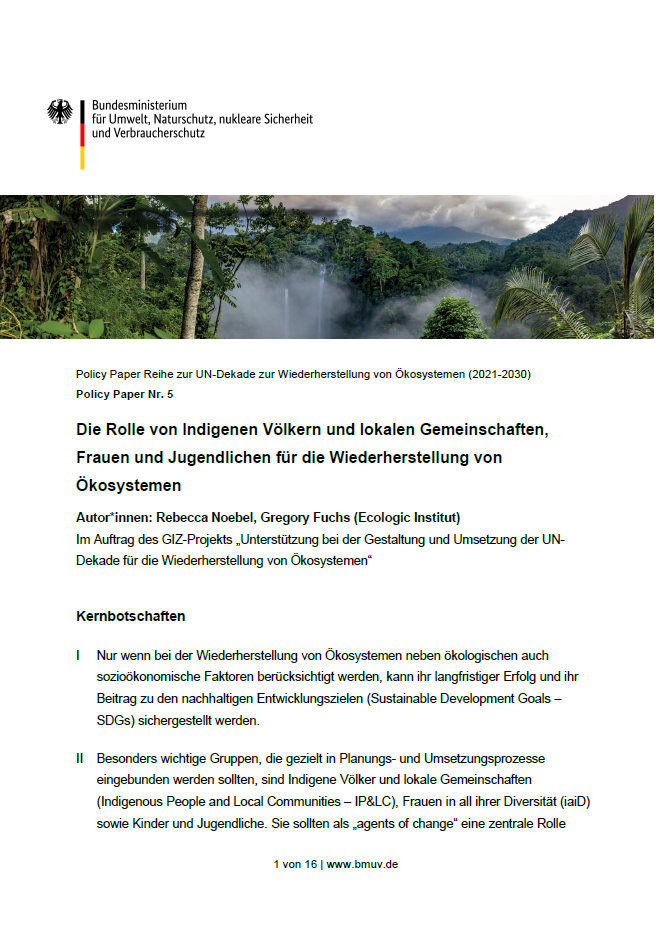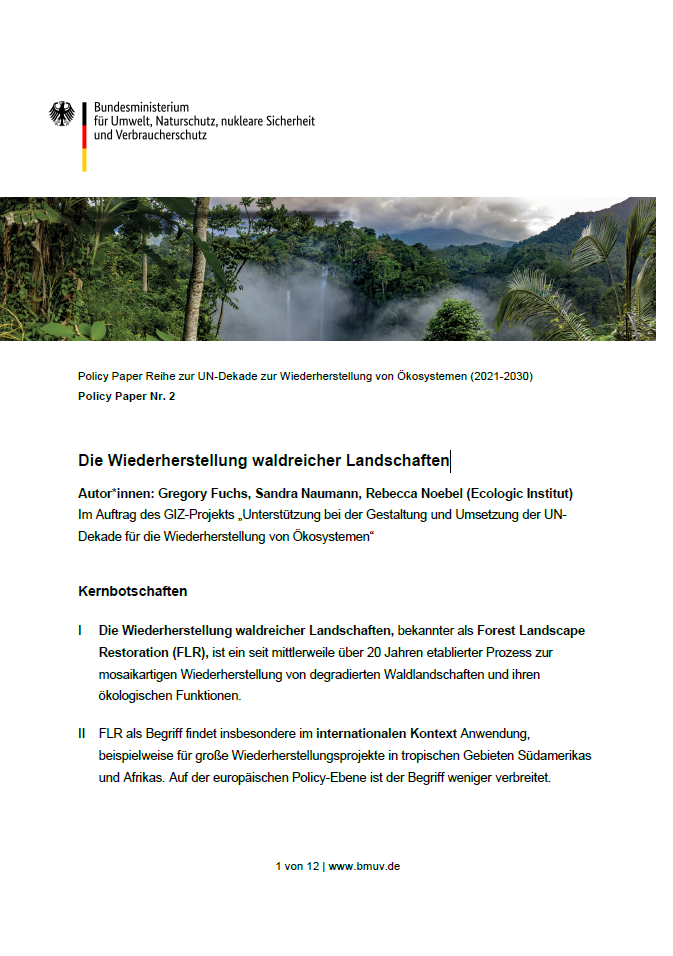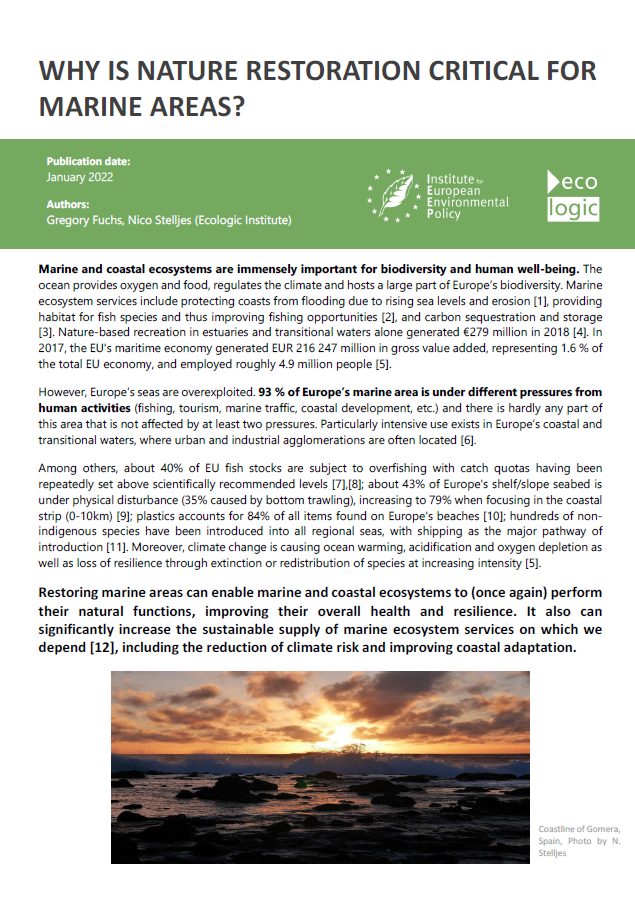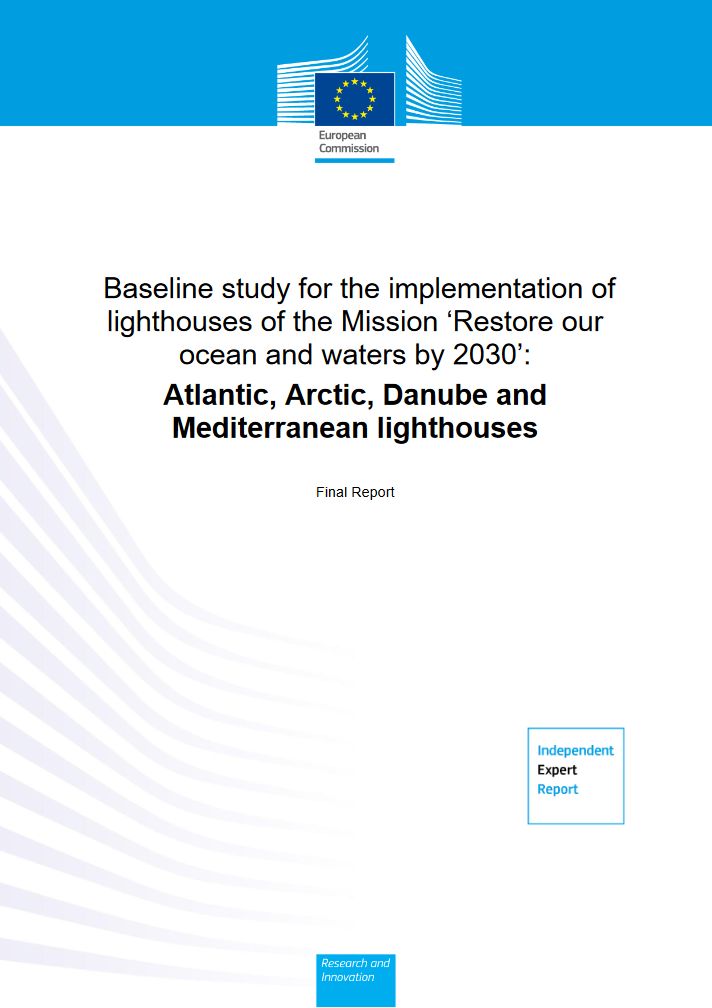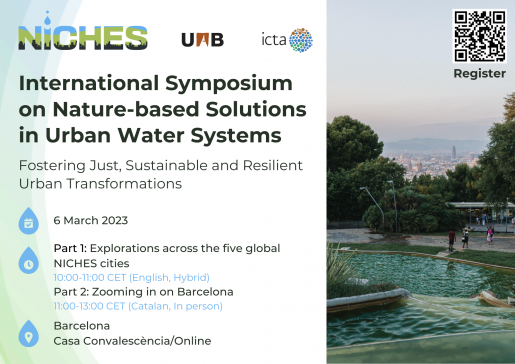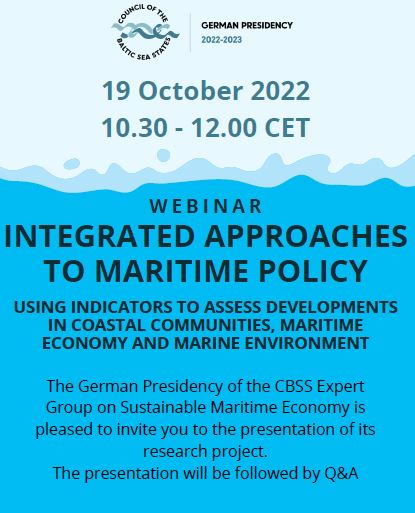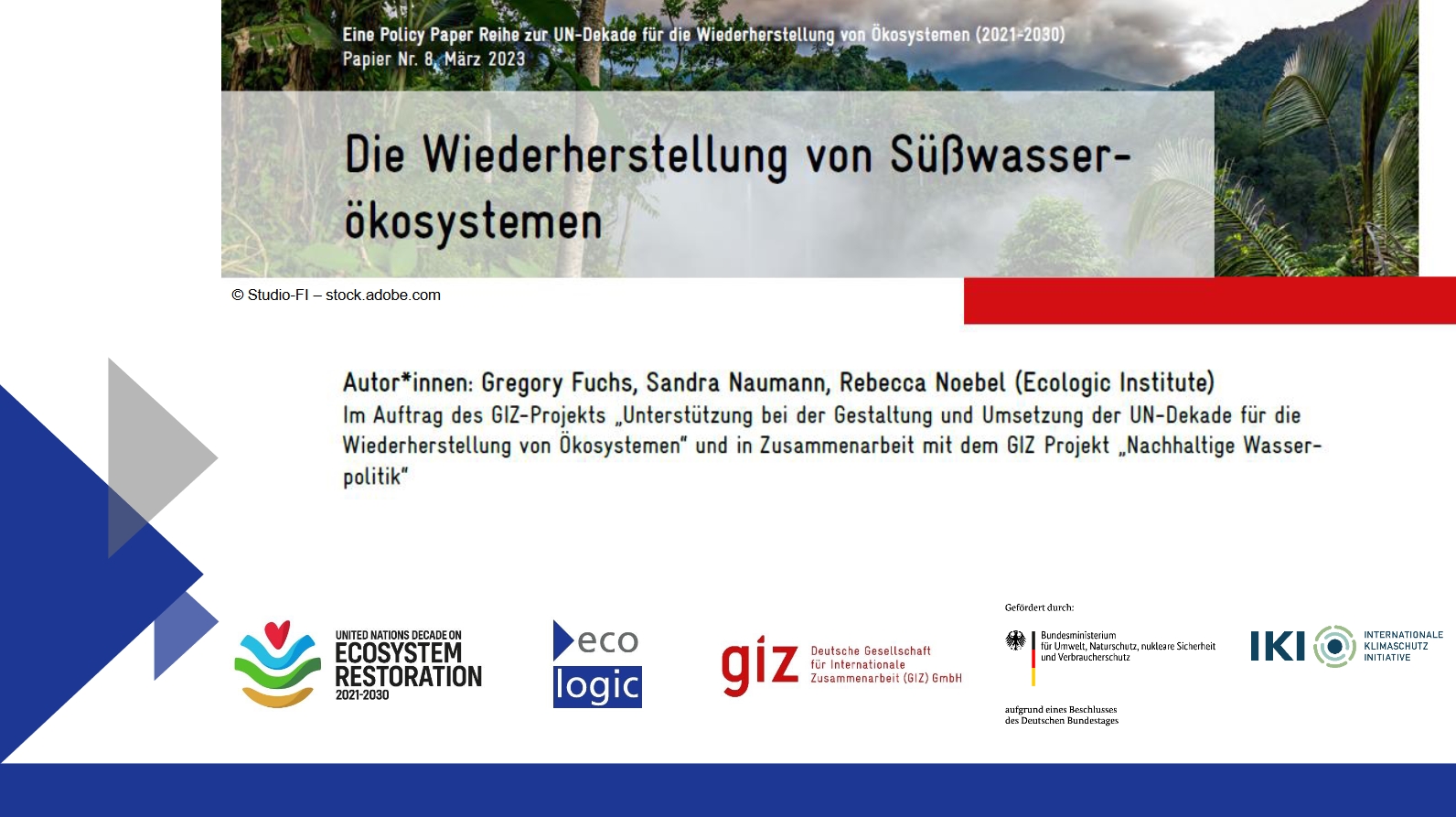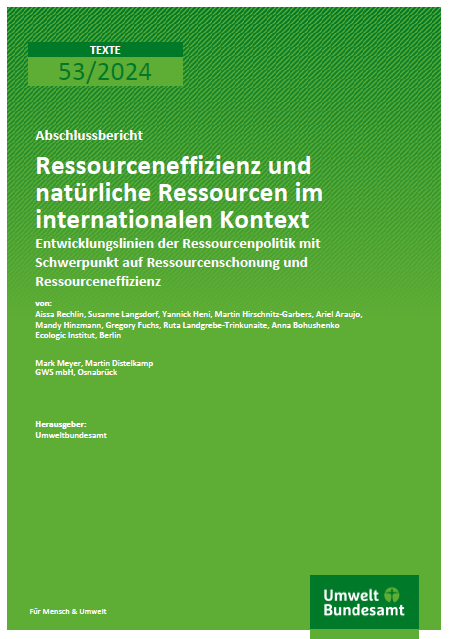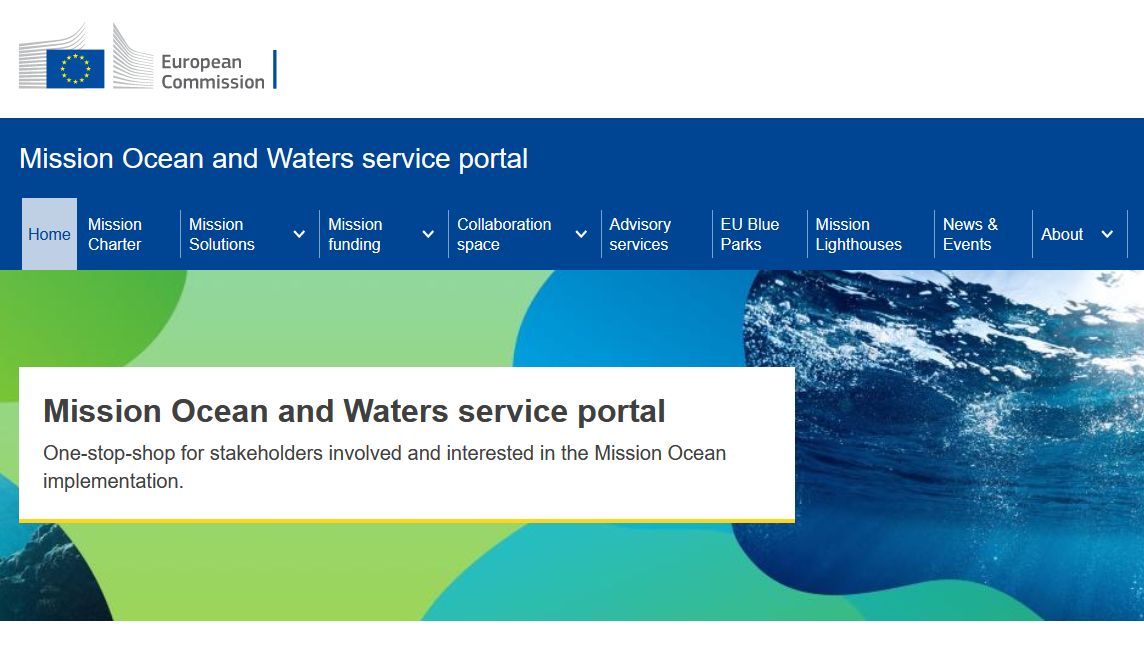
Gregory Fuchs
MSc (Marine Environmental Management)
Researcher
- Team
- Topics
Gregory Fuchs is a marine scientist specialised in biodiversity conservation and ecosystem-based governance. His work concentrates on managing human impacts on marine and coastal environments, with an emphasis on nature-based solutions and ecosystem restoration to boost social-ecological resilience and ensure lasting sustainability. He works in English and German.
In his role at the Ecologic Institute, Gregory is involved in various projects where he operates at critical intersections that balance environmental health and solutions to societal challenges. In the Marine SABRES project, Gregory Fuchs is pivotal in applying social-ecological systems thinking and ecosystem-based management to devise targeted solutions for reversing marine biodiversity decline, fostering societal change on sustainability issues, and refining governance measures and targets. Gregory Fuchs is also actively involved in the EU Mission for the Restoration of Oceans, Seas, and Waters, a strategic initiative aiming to conserve and restore marine and aquatic ecosystems across the EU. He is a key member of the Mission Ocean Implementation Support Platform instrumental in supporting the effective implementation of the EU Blue Parks Community, driving knowledge exchange and fostering networking on EU marine protection. He is also deeply involved in a project that investigates cross-sectoral support for sustainable climate adaptation and resilient ecosystems in the North- and Baltic Sea (MEER:STARK). Additionally, he regularly delivers lectures on marine and coastal ecosystem restoration and Nature-based Solutions at the Dresden University of Applied Sciences through their Centre for International Postgraduate Studies of Environmental Management (CIPSEM).
His previous contributions to the field include his role as a key member of the project team tasked with implementing the EU Marine Strategy Framework Directive. He also played an important role in developing indicators for an Integrated German Marine Policy. He undertook a comprehensive scoping study designed to greening the blue bioeconomy and transition to more sustainable fisheries and aquaculture within the EU, which incorporates aspects of circular economy principles and leverages economic policy instruments. He also contributes to a project that investigated sustainable aquaculture in a German context. He also provided Strategic Support for the UN Decade for Ecosystem Restoration.
Prior to joining Ecologic Institute, Gregory Fuchs worked for the Deutsche Gesellschaft für Internationale Zusammenarbeit (GIZ) on a marine conservation project, giving policy advice to the German Ministry for Economic Cooperation and Development (BMZ). There he supported the facilitation of research partnerships with African countries via the MeerWissen initiative, as well as monitoring of policy processes (e.g. CBD Post-2020 Biodiversity Framework) and developed a portfolio analysis of GIZ projects using the IUCN Global Standard for Nature-based Solutions.
Gregory Fuchs studied Marine Environmental Management at the University of York (United Kingdom), focusing particularly on marine biodiversity conservation, coastal and fisheries management and marine protected areas. After having collected field data in the US Pacific Northwest, he wrote his diploma thesis on how a dam breach scenario would affect an endangered orca population's salmon food supply.
Contact Gregory Fuchs by Email
Selected projects by Gregory Fuchs
Mangrove seedlings growing in Tanjung Puting National Park, West Kalimantan, Indonesia.
|Photo by Daniel Murdiyarso/CIFOR, 2.0 Generic (CC BY-NC-ND 2.0)
Strategic Support for the UN Decade for Ecosystem Restoration
- Duration
-
-
- Funding
-
Deutsche Gesellschaft für Internationale Zusammenarbeit (GIZ), Germany
Analytical and Technical Support During the Negotiations Process for the Nature Restoration Law
- Duration
-
-
- Funding
-
European Commission, Directorate-General Environment (DG Environment), International
Greening the Blue Bioeconomy and Transition to Sustainable Fisheries and Aquaculture
- Duration
-
-
- Funding
-
European Environment Agency (EEA), International
Indicators of an Integrated German Marine Policy
- Duration
-
-
- Funding
-
Federal Ministry of Transport and Digital Infrastructure (BMVI), Germany
Marine Systems Approaches for Biodiversity Resilience and Ecosystem Sustainability (HEU Marine SABRES)
- Duration
-
-
- Funding
-
European Commission, Directorate-General Research & Innovation (DG Research & Innovation), International
Nature's Integration in Cities' Hydrologies, Ecologies and Societies (NICHES)
- Duration
-
-
- Funding
-
Federal Ministry of Education and Research (BMBF), Germany VDI/VDE Innovation + Technik, Germany
Implementation of Lighthouses of Mission 'Restore our oceans and waters by 2030'
- Duration
-
-
- Funding
-
European Commission, Directorate-General Research & Innovation (DG Research & Innovation), International
Species Protection Rules under the Birds and Habitats Directives
- Duration
-
-
- Funding
-
European Commission, Directorate-General Environment (DG Environment), International
European Topic Centre on Biodiversity (ETC/BD) 2019-2022
- Duration
-
-
- Funding
-
European Environment Agency (EEA), International
Implementation of the EU Marine Strategy Framework Directive (MEER project)
- Duration
-
-
- Funding
-
German Environment Agency (UBA), Germany
Selected publications by Gregory Fuchs
Fuchs, Gregory et al. 2023: Die Rolle nachhaltiger Produktionsmethoden und Investitionen sowie naturpositiver Lieferketten für die Wiederherstellung von Ökosystemen. Policy Paper Nr. 9 der Policy Paper Reihe zur UN-Dekade zur Wiederherstellung von Ökosystemen (2021-2030). Federal Ministry for the Environment, Nature Conservation, Nuclear Safety and Consumer Protection, Berlin.
Fuchs, Gregory et al. 2023: Die Ergebnisse der CBD COP15 und ihre Bedeutung für die UN-Dekade zur Wiederherstellung von Ökosystemen. Papier Nr. 7 der Policy Paper Reihe zur UN-Dekade für die Wiederherstellung von Ökosystemen (2021-2030). Federal Ministry for the Environment, Nature Conservation, Nuclear Safety and Consumer Protection, Berlin.
Fuchs, Gregory and Rebecca Noebel 2023: Die Wiederherstellung von Meeres- und Küstenökosystemen. Papier Nr. 6 der Policy Paper Reihe zur UN-Dekade für die Wiederherstellung von Ökosystemen (2021-2030). Federal Ministry for the Environment, Nature Conservation, Nuclear Safety and Consumer Protection, Berlin.
Noebel, Rebecca; Fuchs, Gregory (2023): Die Rolle der Konvention zur Bekämpfung von Wüstenbildung (UNCCD) in der UN-Dekade zur Wiederherstellung von Ökosystemen. Papier Nr. 3 der Policy Paper Reihe zur UN-Dekade für die Wiederherstellung von Ökosystemen (2021-2030). Federal Ministry for the Environment, Nature Conservation, Nuclear Safety and Consumer Protection, Berlin.
Fuchs, Gregory et al. 2023: Die Wiederherstellung von Süßwasserökosystemen. Papier Nr. 8 der Policy Paper Reihe zur UN-Dekade für die Wiederherstellung von Ökosystemen (2021-2030). Federal Ministry for the Environment, Nature Conservation, Nuclear Safety and Consumer Protection, Berlin.
Noebel, Rebecca; Fuchs; Gregory (2023): Die Rolle von Indigenen Völkern und lokalen Gemeinschaften, Frauen und Jugendlichen für die Wiederherstellung von Ökosystemen. Federal Ministry for the Environment, Nature Conservation, Nuclear Safety and Consumer Protection, Berlin.
Fuchs; Gregory; Naumann, Sandra; Noebel, Rebecca (2023): Die Wiederherstellung waldreicher Landschaften. Federal Ministry for the Environment, Nature Conservation, Nuclear Safety and Consumer Protection, Berlin.
Fuchs, Gregory; Stelljes, N. 2023: Why is nature restoration critical for marine areas?. IEEP, Ecologic Institute: Brussels, Berlin.
European Commission, Directorate-General for Research and Innovation, Alao Chanou, Z., McColgan, O., Berbel, J., et al., Baseline study for the implementation of lighthouses of the Mission 'Restore our ocean and waters by 2030': Atlantic, Arctic, Danube and Mediterranean lighthouses, Publications Office of the European Union, 2023, https://data.europa.eu/doi/10.2777/34856
Naumann, S., Noebel, R., Fuchs, G. and Roscher, S. 2021: Protected area management in the EU – Supporting the advancement of the Trans-European Nature Network. ETC/BD report to the EEA.
Selected events by Gregory Fuchs
Digital Event:International Symposium on Nature-based Solutions in Urban Water Systems
- Date
-
- Location
- hybrid, Barcelona, Spain
Conference:Marine Protected Areas, Source-to-sea Concepts and Multi-use of Marine Space
- Date
-
- Location
- Lisbon, Portugal
Digital Event:Arctic Marine Conservation Dialogue 2021
- Date
-
-
- Location
- online
Selected presentations by Gregory Fuchs
Speech:Integrated Approaches to Maritime Economy in the Baltic Sea Region
- Date
-
- Location
- online
Speech:Freshwater Ecosystem Restoration
- Date
-
- Location
- online





